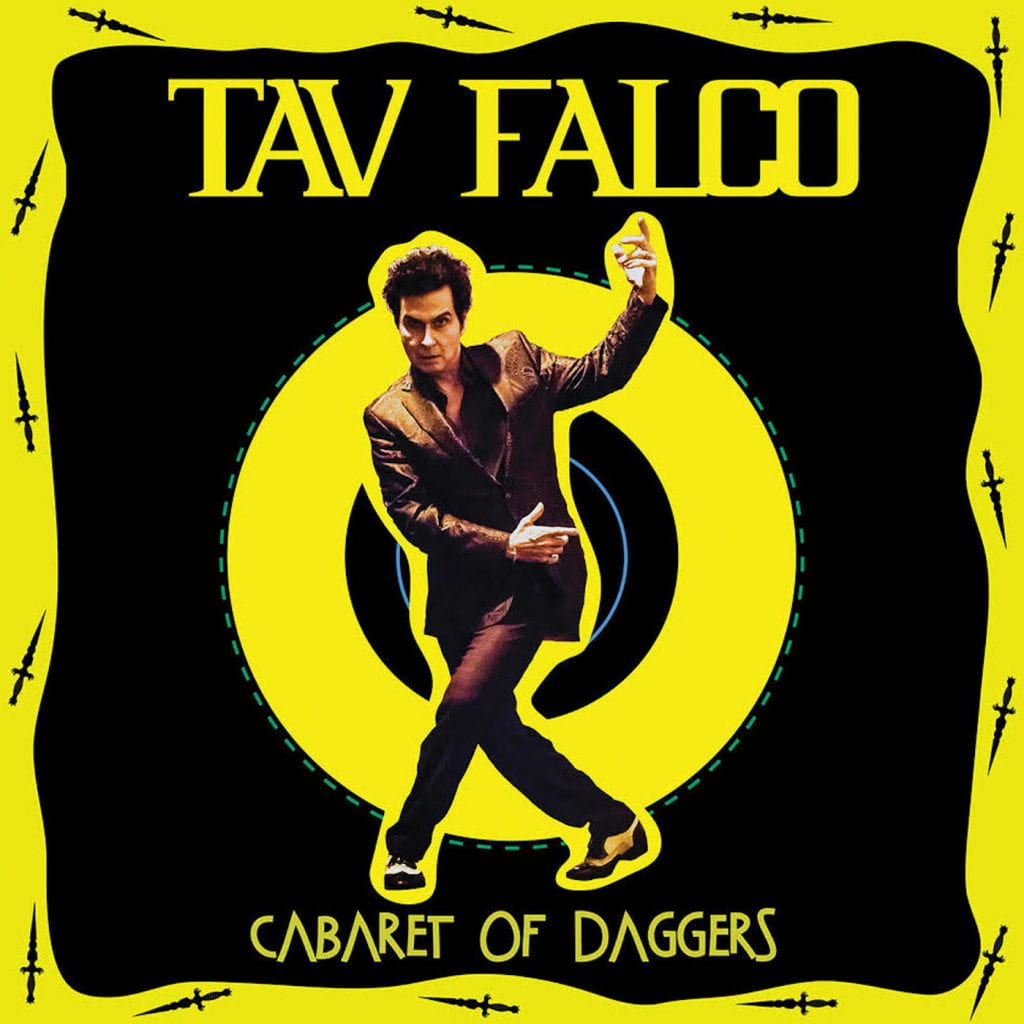
Gustavo Nelson (a.k.a. Tav Falco) (BA ’72) made an appearance on BBC2 London, Sunday’s episode of “The Jools Holland Radio Show,” on December 15. Tav was interviewed by Jools, and the two performed a song together, accompanied by Panther Burns’s producer/instrumentalist Mario Monterosso. Tav’s latest LP, Cabaret of Daggers, is out now on ORG Music label in Los Angeles. Tav was also interviewed last May for the Arkansas Times.
We sent a few follow-up questions to Tav to ask him about his experiences as an English major at the U of A, his career as the leader of the band Tav Falco’s Panther Burns, the extent to which he has stayed connected to Arkansas, and his recommendations for good books and music. Read our interview with him, below.
You started your B.A. in English at the University of Arkansas in the late 1960s, graduating in 1972. Could you talk a little about what initially drew you to the major?
My mother and I drove up from Clark County, and she helped me move into Humphrey’s Hall, which was a new freshmen dorm. Not long after my matriculation I attended the first real stage play I’d ever seen, The Importance of Being Earnest, at the University Theater designed by Edward Durell Stone. I fell totally under the spell of this production – the lighting, the acting, the wit, and the charm of it. From those first moments in the dark of the audience, I knew I wanted to follow a path to the stage on the other side of the lights… and I did that. Yet, I faced a constant struggle keeping up my grade point while appearing on the university stage. After some years flogging this situation, I decided to pursue a direct degree path that involved only reading and writing, rather than adding stagecraft to the mix. So I graduated in English Literature in a sense by default. Further, I knew that an actor must read widely.
I would love to hear about an English course you took and/or an English professor who taught you at the U of A. Can you share a favorite memory or two?
My tenure at the U of A was during the turbulent 1960s. At the end of my junior year, I became somewhat psychedelicized and gravitated to San Francisco. In due course, I returned to Fayetteville determined to finish my degree. Before I’d “dropped out,” I had been attending primarily graduate level courses including a creative writing semester under Arkansas poet Miller Williams. For him I wrote one rather terse term paper, but it was enough to be invited into his graduate program. No dice… I was still too restless to settle into the discipline of writing creatively. It was really Professor Ben Kimpel who believed in me and who, along with Arkansas poet James Whitehead, stimulated my thirst for literature and my study of la langue française. Dr. Kimpel administered my final degree course in his office on the contemporary novel.
We are constantly promoting how valuable humanities-related skills are outside of academia–i.e., English degrees benefit those who pursue non-teaching (“alt-ac”) professions as well as teaching careers. You probably chose one of the best alt-ac paths ever: starting in the 1970s, you began a highly successful career as an internationally known and respected musician, leading the band Tav Falco’s Panther Burns, which continues to perform around the world. You’ve also done acting, filmmaking, and photography. How have your skills as an English major remained relevant to you, over the years, as an artist?
To term my modest career as ‘highly successful’ is something of a stretch, yet I am a survivor in what I do, and what I do is my own work. I had no idea I would ever use French, for example, until I lived in Paris for four years recording albums for an international label. There I found my university study of the language was invaluable on a day-to-day basis. Nor had I the foggiest notion that I would ever use my university study in literature in any practical way. However, developing a sense of aesthetics was a result that goes beyond practical considerations. Of equal benefit was the foundation that my study in literature and theater afforded during this formative period – a foundational undercurrent that seemed to construct, deconstruct, and reconstruct my thinking and my utterance over the years. This evolvement supported my being able to articulate and to write my book, Ghosts Behind The Sun: Splendor, Enigma, and Death.
Have you ever thought about coming back to Arkansas to perform music and/or make a film?
Well, I have performed in Arkansas a few times… the most visible of those being a co-headline appearance on the 2013 Arkansas Sounds Festival in Little Rock.
The initial journey of Part I of my feature film, The Urania Trilogy, begins along the banks of the Arkansas River in North Little Rock. The film then quickly decamps to another river town – Vienna, the merry/sinister old imperial city on the Danube.
I often ask alumni for a favorite author or book that they would recommend.
A critical treatise, The Orphic Vision – Seer Poets from Novalis to Rimbaud, by Gwendolyn Bays, speaks to my ongoing mission to stir up the dark waters of the unconscious.
Although I was asked to write the prologue, I might recommend the debut “twin” novellas by Gabriel Hart entitled, Virgins In Reverse & The Intrusion: kitchen sink drama set in a metamorphic Los Angeles; and the other, a literary Chinese finger trap.
I’d also be interested in knowing a singer you admire as much for the poetry of their lyrics as for the power of their melodies.
Jim Morrison – the “Lizard King” – for his lyrical thrust, his ethos, and for the power of his political stance. We have too few protest singers today. Those that we do have seem more interested in having awards hung around their necks than to continue breaking down barriers that violate core human dignity.

